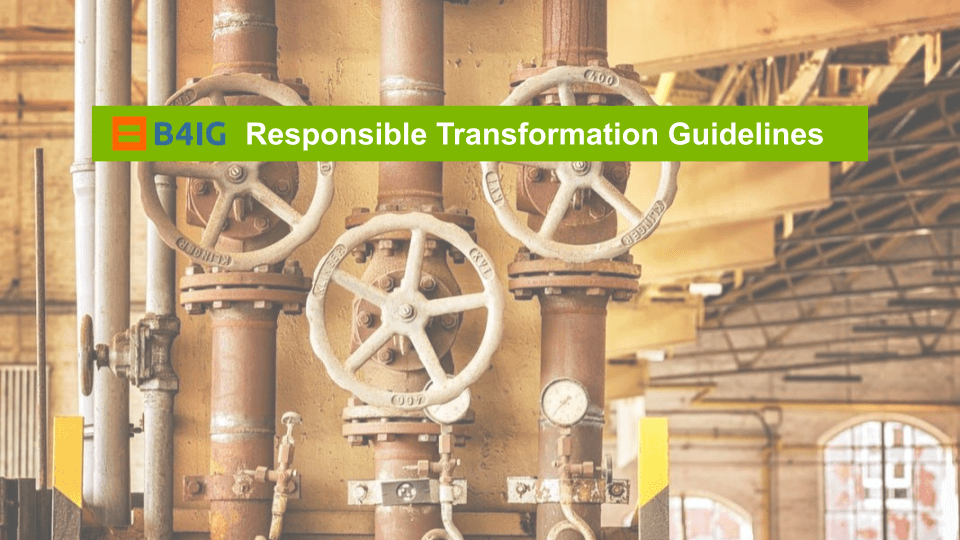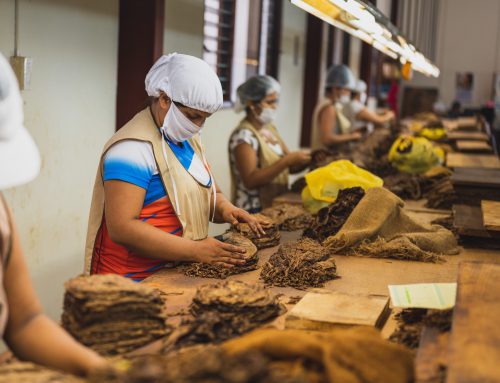Now that transformation is a permanent dimension of our economies, how can we ensure that any restructuring process considers socio-economic impacts and considers employees fairly, thereby avoiding the reinforcement of inequalities?
To answer these questions and help members and the wider business community in this process, B4IG has brought together a Working Group on Responsible Transformation, led by Michelin and Unilever, and encompassing Accenture, Danone, JAB, Hitachi, and Schneider Electric. This group held several working sessions focusing on companies’ experiences and efforts, and shared learnings to develop a holistic framework for adopting inclusive and responsible practices.
The ‘Responsible Transformation Guidelines’ have been adopted by the B4IG Board, with the objective of contributing to a more responsible and inclusive way to manage restructurings, by encouraging open dialogue and knowledge transfers across the global business community.
These Responsible Transformation guidelines contain eleven inclusive actions and are presented under three main pillars, each of them illustrated with several examples, to explain:
- How a company prepares for transformation by creating and investing in a culture of continuous learning and adaptation.
For example, a leading technology and consulting B4IG member company is investing in tools that utilise machine learning to scan the CVs of displaced workers for skills, as well as scanning the market for jobs, assessing the associated skills gaps between the two, and proposing learning curricula to prepare those workers for future jobs.
- How a company can proactively plan the transformation and implement a step-by-step procedure, from designing the plan, to engaging stakeholders, to preparing reskilling/upskilling programs.
For example, an agri-food company of B4IG helps understand existing organizational, social and human stakes and provides a complete toolkit to (1) negotiate with social partners, (2) identify future jobs, (3) build training programmes, (4) support each employee to develop their future re-skilling and up-skilling training modules through a 2-year training journey.
- How a company can provide support to vulnerable workers and related communities as well as prevent discrimination in the restructuring process.
Several B4IG companies have incorporated individual and collective group pathways through which employees discuss interests, are provided small business workshops and assisted to discover alternative internal job opportunities as well as external employment within the ecosystem and/or outside.
The Guidelines also offer a set of KPIs for companies to measure and monitor the progress of each inclusive action and whenever applicable, outcome indicators are presented for usage. At B4IG, we believe that a clear distinction is required between output indicators, used to evaluate the effectiveness of an action or program, and outcome indicators, that measure their impact.
*




